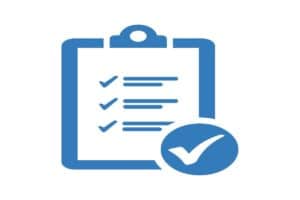
Many adult children with special needs receive Social Security benefits. Furthermore, many parents of adult children with special needs serve as their children’s guardians, powers of attorney, and/or representative payees for Social Security benefits. As a result, parents should be aware of the various reporting requirements for recipients of Social Security benefits and meet these reporting requirements as needed. Rubin Law can assist you in understanding and meeting these requirements and handling any issues that may arise due to these reporting requirements.
General Social Security Administration Reporting Requirements
Adults who have been disabled since childhood may receive Social Security benefits in the form of Supplemental Security Income (SSI) or Social Security Disability Income (SSDI), depending on their situation. However, receiving either of these benefits comes with certain reporting requirements to the Social Security Administration (SSA). Failure to meet these reporting requirements can result in the loss of benefits or the overpayment or underpayment of benefits.
Some of the changes that you should always report to SSA include the following:
- Change in the beneficiary’s mailing address
- Incarceration of the beneficiary for more than 30 continuous days
- An outstanding warrant for a probation or parole violation for the beneficiary for more than 30 continuous days
- Change in the beneficiary’s marital status
- The beneficiary begins working or stops working
- The beneficiary has a child
You can report changes to SSA by visiting the “my Social Security” section at www.socialsecurity.gov, calling SSA at 1-800-772-1213 or TTY 1-800-325-0778, or calling, visiting, or writing your local SSA office. If you submit documents to SSA, you should always keep a copy of any documents that you submit.
You also may be able to use automated wage reporting tools available through SSA, including the SSI Telephone Wage Reporting System and the SSA Mobile Wage Reporting application. Your local SSA office can help you determine if you are eligible to use any of these automated wage reporting tools. You also can sign up to receive a monthly email or text message wage reporting reminder from SSA.
SSI Reporting Requirements
SSI is a needs-based benefits program, so reporting requirements tend to be more stringent than for other types of Social Security benefits. The amount of monthly income that an SSI beneficiary and his household receives directly impacts the amount of monthly benefits for which he is eligible. Therefore, in addition to the general reporting requirements listed above, an SSI recipient needs to report the following changes to SSA:
- Change in living arrangements
- Change in earned or unearned income (including earnings of anyone in the beneficiary’s household)
- Change in resources
- Change in help with living expenses from friends or relatives
- Eligibility for benefits or other payments
- Admission to or discharge from an institution, including a hospital, nursing home, or correctional institution
- Change in school attendance, if under age 22
SSDI Reporting Requirements
The SSDI program provides benefits called Childhood Disability Benefits (“CDB”) previously known as Disabled Adult Child or (“DAC”) status to adults who became disabled before the age of 22 and whose parents paid into or received Social Security benefits. In some cases, an adult can even draw CDB from a grandparent’s earnings record when they have no living parents and the grandparent is collecting retirement or disability benefits or has passed away. Therefore, many adult children with special needs may qualify for SSDI based on a parent’s (or grandparent’s) earnings record. Generally, an adult child must remain unmarried to receive these SSDI benefits, although there may be an exception when two adult children who have disabilities marry.
Generally, individuals who receive SSDI must not engage in substantial gainful activity (SGA) to remain eligible for SSDI benefits. Although the SGA amount changes every year, the SGA amount for 2022 is $1,350 per month. As a result, a person receiving SSDI in 2022 who is not blind must make no more than $1,350 per month from working; otherwise, SSA will consider them to have engaged in SGA and may be ineligible for SSDI benefits.
As a result, SSDI recipients also must report their earnings and income from work to SSA. They also must report any changes in their work activity, such as starting or stopping a job, changes in the rate of pay, and changes in the number of hours worked. They also should report if they have to pay for items or services that they need to work or receive extra help to work due to their special needs.
Contact Rubin Law Today to Schedule an Initial Consultation
Rubin Law is an Illinois law firm whose sole purpose is to enhance the lives of children and adults with intellectual disabilities, developmental disabilities, and mental illnesses. We offer legal services and future planning for adults and children with special needs. Our patience, compassion, and unique understanding of individuals with disabilities and those who care for them allow us to offer the legal guidance you need.
We have the skills and knowledge to help you provide for your child’s future needs and meet your objectives. Set up a time to speak with us about your family by contacting us online or calling 866-TO-RUBIN.



